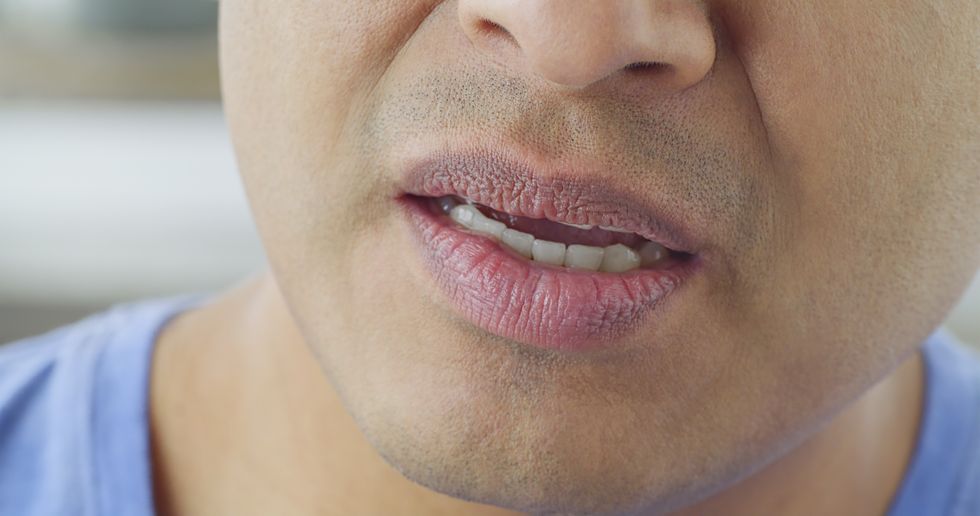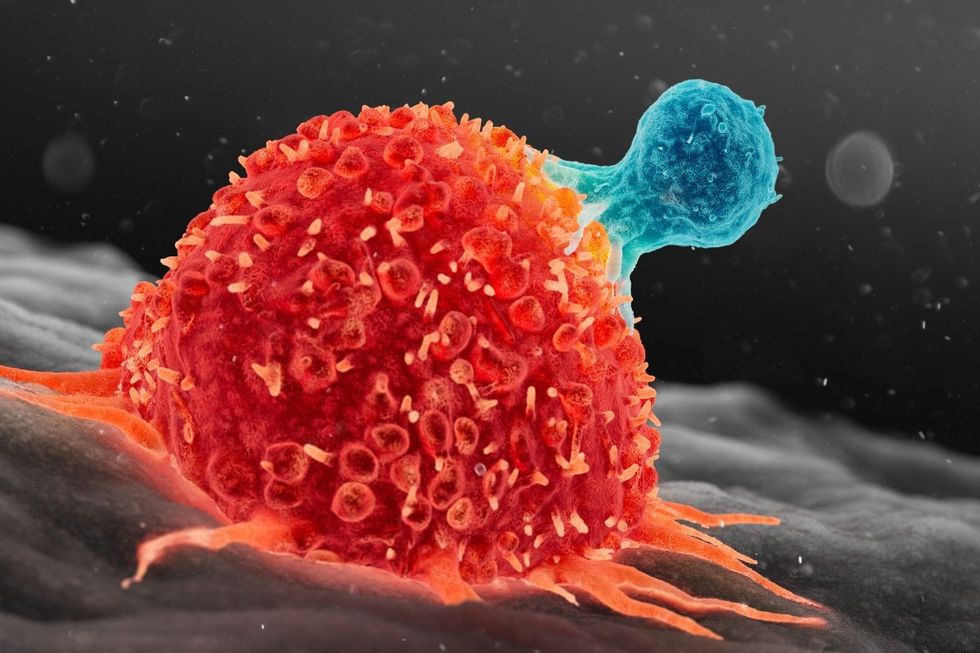Cancer doctor warns never to ignore 'really common' mouth symptom lasting three weeks

Mouth ulcers can be caused by other conditions, but it is always best to check
Don't Miss
Most Read
Ignoring aches is part of everyday life - but pain that sticks around could be the body's way of sending a serious signal.
A radiation oncologist has warned Britons that oral sores persisting beyond three weeks require medical assessment due to potential cancer risks.
Dr Jiri Kubes, who practises at Prague's Proton Therapy Center, noted that while oral lesions typically heal within a fortnight, those that last longer warrant investigation.
**ARE YOU READING THIS ON OUR APP? DOWNLOAD NOW FOR THE BEST GB NEWS EXPERIENCE**

A dentist or doctor can investigate sores that persist
|GETTY
"Mouth ulcers are really common and rarely a sign of anything serious, but persistent sores that have not cleared up within three weeks should be checked. A doctor or dentist can do this," Dr Kubes stated.
The specialist stressed that although most oral lesions prove benign, prolonged healing times could signal malignancy.
But it may be worth checking for several additional indicators that suggest oral malignancy beyond persistent sores.
Dr Kubes explained that abnormal growths or swellings within the oral cavity or cervical region that fail to resolve constitute warning signs.
Patients might experience unexplained discomfort and challenges when ingesting food or liquids. They may also notice sudden weight reduction without dietary changes, all of which warrant medical attention.
In some instances, patients experience alterations resulting in persistent hoarseness.
The appearance of crimson or pale patches within the oral cavity represents another concerning symptom, noted Dr Kubes.
Medical professionals advise monitoring for these manifestations, as they might indicate serious conditions despite potentially arising from benign causes.
Dr Kubes advocates routine oral cavity inspections, particularly for tobacco users who face elevated risks.
"Ideally, you want the inside of your mouth to look pink and healthy," the oncologist explained. "It's a good idea to get into the habit of taking a look inside your mouth regularly."
The specialist recommended examining the entire tongue surface for alterations and checking for growths or colour changes along the inner surfaces of both lips.
"These symptoms are common and can be caused by other conditions, but it is always best to check," Dr Kubes noted.
LATEST DEVELOPMENTS

Different therapeutic approaches exist for treating oral malignancies
|GETTY
How is mouth cancer treated?
Various therapeutic approaches exist for treating oral malignancies, encompassing surgical intervention, chemotherapy, radiation treatment and Proton beam therapy.
"Proton beam therapy has the potential to offer fewer side effects because it uses a highly-charged proton beam to target cancer cells with pencil-point precision," Dr Kubes explained.
"This can ensure the dose is targeted and surrounding tissues are better protected, which is important in the very delicate head and neck area."
The technology's accuracy proves particularly beneficial when treating cancers near sensitive anatomical structures.










